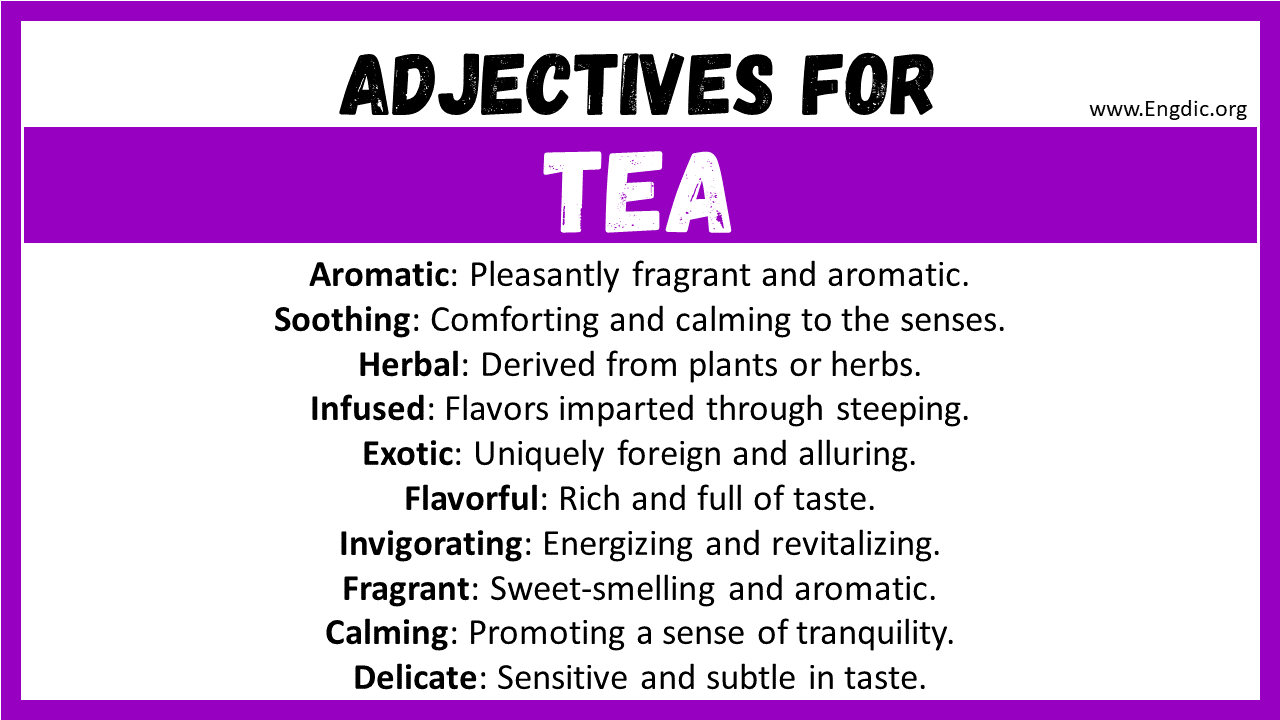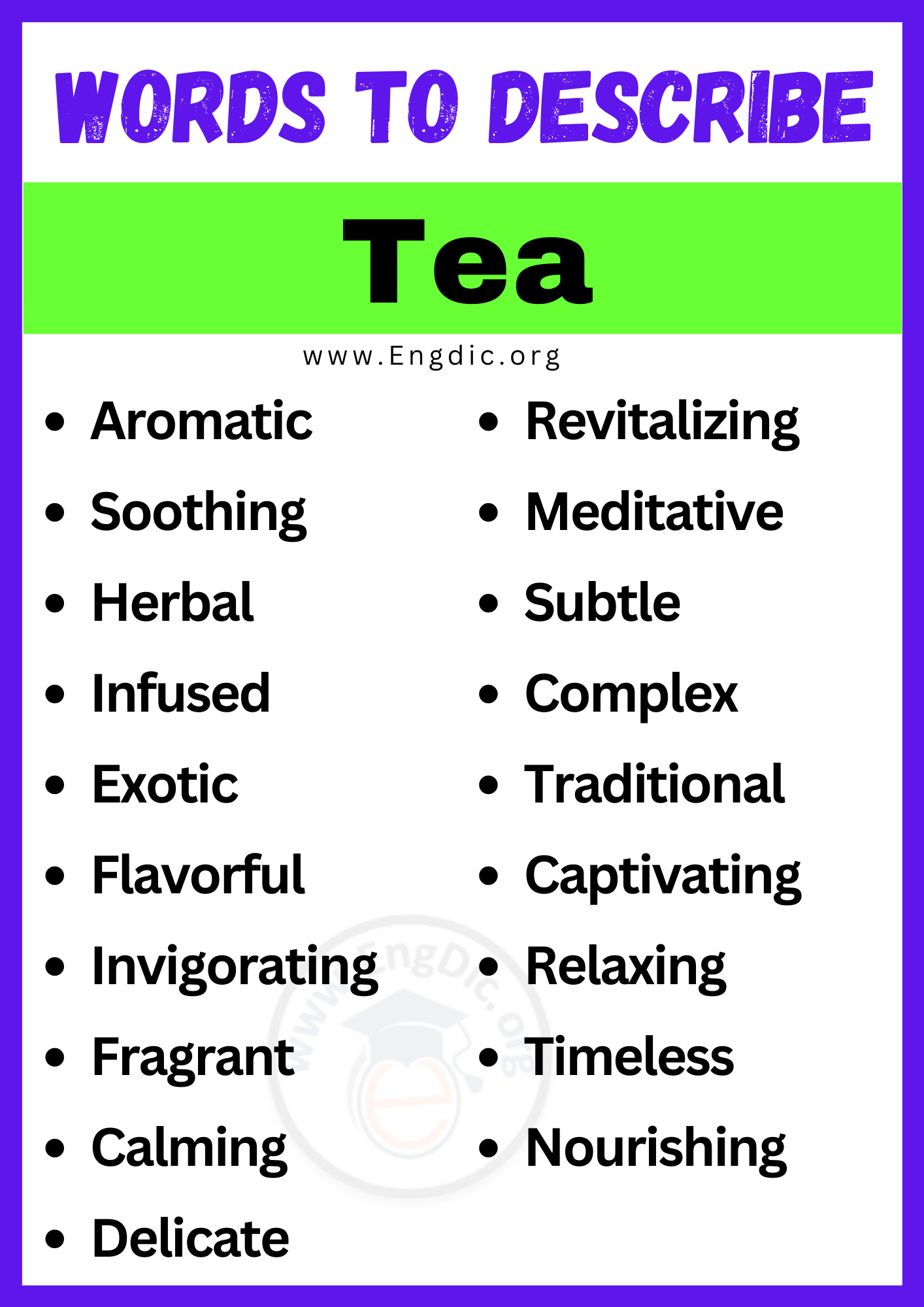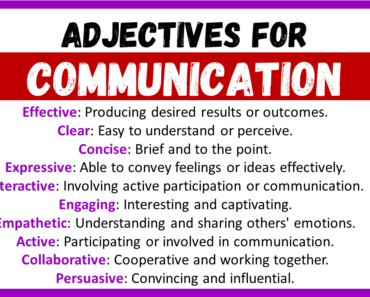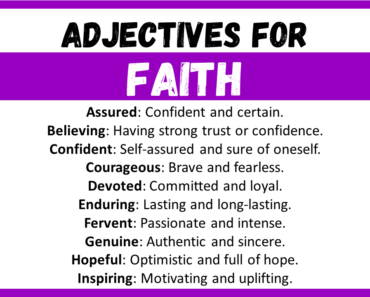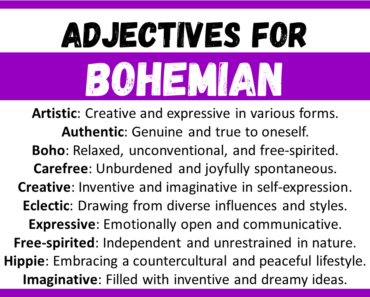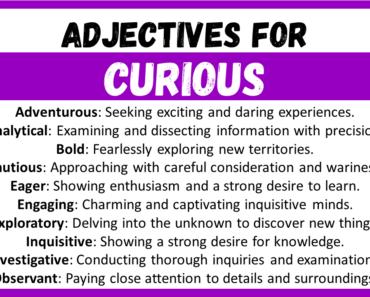Tea, a beloved beverage enjoyed worldwide, is a refreshing and aromatic infusion made from the leaves of the Camellia sinensis plant. As its popularity continues to grow, so does the appreciation for its diverse characteristics and flavors. In this blog post, we’ll explore a delightful array of words that capture the essence of tea. From robust and earthy to delicate and floral, these descriptive terms unravel the captivating experience of sipping on this ancient and soothing elixir. Join us as we delve into the world of words that beautifully encapsulate the magic of tea.
Adjectives for Tea
Here are the 20 Most Popular adjectives for tea:
- Aromatic
- Soothing
- Herbal
- Infused
- Exotic
- Flavorful
- Invigorating
- Fragrant
- Calming
- Delicate
- Revitalizing
- Meditative
- Subtle
- Complex
- Traditional
- Captivating
- Relaxing
- Antioxidant-rich
- Timeless
- Nourishing
Adjectives for Tea Party:
- Charming
- Elegant
- Delightful
- Graceful
- Enchanting
- Whimsical
- Joyful
- Festive
- Vibrant
- Memorable
Adjectives for Milk Tea:
- Creamy
- Silky
- Rich
- Indulgent
- Smooth
- Velvety
- Luscious
- Decadent
- Mellow
- Satisfying
Adjectives for Sweet Tea:
- Sugary
- Refreshing
- Honeyed
- Pleasant
- Nectarous
- Quenching
- Balmy
- Fruity
- Invigorating
- Summery
Adjectives for Iced Tea:
- Cool
- Refreshing
- Crisp
- Chilled
- Brisk
- Revitalizing
- Zesty
- Icy
- Tangy
- Quenching
Words to Describe Tea with Meanings
- Aromatic: Pleasantly fragrant and aromatic.
- Soothing: Comforting and calming to the senses.
- Herbal: Derived from plants or herbs.
- Infused: Flavors imparted through steeping.
- Exotic: Uniquely foreign and alluring.
- Flavorful: Rich and full of taste.
- Invigorating: Energizing and revitalizing.
- Fragrant: Sweet-smelling and aromatic.
- Calming: Promoting a sense of tranquility.
- Delicate: Sensitive and subtle in taste.
- Revitalizing: Refreshing and renewing energy.
- Meditative: Encouraging contemplation and reflection.
- Subtle: Understated and gentle in flavor.
- Complex: Intricately layered and multifaceted taste.
- Traditional: In accordance with long-established customs.
- Captivating: Fascinating and engrossing.
- Relaxing: Inducing a state of calmness.
- Antioxidant-rich: Abundant in health-promoting antioxidants.
- Timeless: Enduring and eternal in appeal.
- Nourishing: Providing essential nourishment and goodness.
Example Sentences for Tea Adjectives
- The aromatic tea filled the room.
- Soothing chamomile tea aids sleep.
- Herbal teas are caffeine-free options.
- Lemon infused tea adds tanginess.
- An exotic blend from distant lands.
- Sip the flavorful tea with delight.
- Invigorating green tea boosts energy.
- The garden emitted a fragrant aroma.
- Calming lavender tea eases stress.
- Handle with delicate care, it’s subtle.
- A revitalizing iced tea quenches thirst.
- Meditation accompanied by meditative tea.
- Subtle flavors dance on your palate.
- Savor the complex tea nuances slowly.
- Embrace traditional tea ceremonies with respect.
- The movie’s plot was captivating like tea.
- Unwind with a relaxing cup before bed.
- Enjoy the antioxidant-rich benefits of green tea.
- Timeless tea traditions passed through generations.
- Sip the nourishing herbal blend for health.
Explore More Words:
FAQ’s
How to describe tea writing?
Describing tea writing involves capturing its diverse flavors, aromas, and textures, evoking a sensory experience that paints a vivid picture of the tea’s unique personality.
What are 4 characteristics to describe tea?
Tea can be described by its aroma, taste profile, color, and origin, all of which contribute to its distinct and varied characteristics.
Why is tea so satisfying?
Tea’s satisfaction lies in its ability to offer a comforting and soothing experience, providing a moment of relaxation and delight with each sip, thanks to its diverse range of flavors and calming properties.
